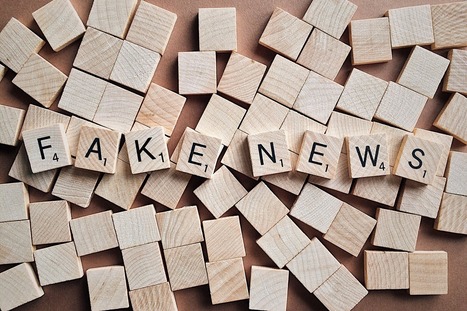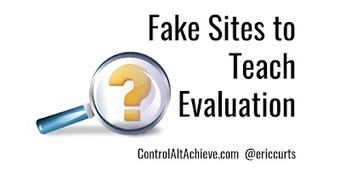In a “post-truth” era where people are increasingly influenced by their emotions and beliefs over factual information, fact and fiction can be difficult to distinguish, and fake news can spread rapidly through mainstream media sources and social networks. Moreover, fake news is often meant to do harm, by tricking us into believing a lie or unfairly discrediting a person or political movement.
Get Started for FREE
Sign up with Facebook Sign up with X
I don't have a Facebook or a X account
 Your new post is loading... Your new post is loading...
 Your new post is loading... Your new post is loading...

Mary Reilley Clark's curator insight,
January 28, 2017 7:54 PM
I did a quick presentation for 6th graders on website evaluation. The link is the the Slides. I have added some notes on each slide to give a better idea of what I'm telling students. Here's a link to the bookmark I give them. I couldn't fit both "Appropriate" and "Accurate" on it, but most 6th graders at our school keep a JAR (Journal of Academic Research) so they paste the bookmark in their JAR and take notes next to it.
I also have students look at other sites and analyze in small groups, using what they learned in the presentation. Interestingly, I just spent the day at the local university learning from the librarians there about how they present research to freshman. One of the librarians mentioned she doesn't like the CRAP acronym because she doesn't want students to think currency is most important. So I will be sure to stress that to students. Could be a good discussion question for them, too! |

Nik Peachey's curator insight,
November 10, 2016 11:53 AM
Very useful content for students to see how false information is circulated. |
















